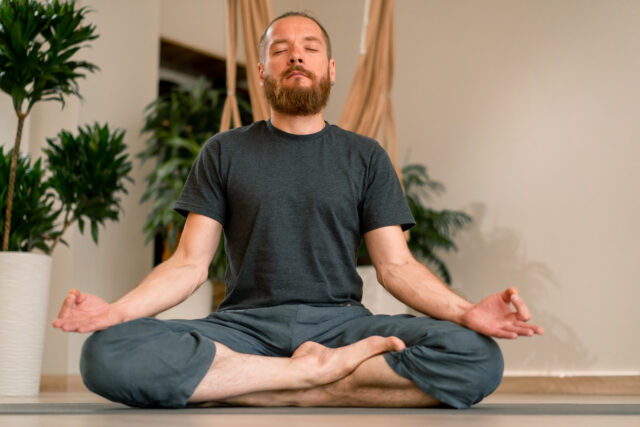Life is tough, and there are some things you can never prepare yourself for.

Still, a lot of the day-to-day issues that come our way are easily fixed — or even easily avoided — if we just put a few simple habits in place. While I can’t guarantee you that implementing these will solve all of your problems, they’ll definitely eradicate about 80% of them, and that’s a pretty impressive chunk, right?
1. Start your day with a consistent morning routine.

A predictable morning routine sets the tone for the rest of your day. Whether it’s a few minutes of stretching, a quiet cup of coffee, or planning your tasks, a steady start helps you feel in control. You’re less likely to feel rushed or scattered when you begin with intention.
2. Prioritise sleep.

Lack of sleep amplifies almost every problem — stress, irritability, poor focus, and low energy. Aim for 7-8 hours each night and keep a consistent bedtime. When you’re well-rested, you handle challenges better, think clearer, and feel more balanced overall.
3. Plan your day the night before.

Before you go to bed, jot down a simple plan for the next day. Knowing what you need to tackle gives you clarity and focus. You’ll wake up with a sense of direction instead of scrambling to figure out what to do. A little preparation reduces morning stress significantly.
4. Exercise regularly — even if it’s just a walk.

Moving your body improves your mood, energy, and health. You don’t need to hit the gym for hours; even a 20-minute walk can help. Exercise clears your mind and releases endorphins, making problems seem smaller and more manageable.
5. Drink enough water.
 Source: Unsplash
Source: Unsplash Dehydration can make you feel sluggish, give you headaches, and even affect your mood. Keep a water bottle handy and aim for 2-3 litres a day. Staying hydrated helps your body function well, keeps your mind clear, and can even reduce unnecessary snacking.
6. Declutter your space regularly.
 Source: Unsplash
Source: Unsplash A messy environment can make your mind feel cluttered, too. Take 10-15 minutes each day to tidy up your workspace, kitchen, or bedroom. Decluttering reduces stress, saves time looking for things, and creates a more peaceful environment.
7. Set clear boundaries with the people around you.

Overcommitting or letting people push your limits creates unnecessary stress. Practice saying “no” when you need to, and protect your time and energy. Healthy boundaries improve your relationships and your mental well-being by keeping burnout at bay.
8. Limit your screen time.

Mindlessly scrolling through your phone or staying glued to screens can leave you feeling drained. Set time limits for social media and screen use, especially before bed. Taking breaks helps clear your mind and gives you more time for things that truly matter.
9. Practice gratitude daily.

Focusing on what you’re thankful for can shift your perspective and reduce stress. Take a moment each day to write or think about three things you’re grateful for. This simple habit helps you notice the positives and makes problems feel less overwhelming.
10. Break big tasks into smaller steps.

Large tasks can feel intimidating, which leads to procrastination. Break them down into bite-sized steps and tackle one at a time. Each small win builds momentum and makes the overall task easier to manage. Progress feels less daunting this way.
11. Spend time in nature.

Even a short walk in the park can do wonders for your mental health. Nature reduces stress, clears your head, and boosts your mood. Fresh air, greenery, and natural light can help you reset and feel more grounded when life feels hectic.
12. Create a simple evening wind-down routine.

End your day with calming activities like reading, listening to music, or stretching. Avoid screens and work-related tasks in the hour before bed. A relaxing evening routine helps you sleep better and signals to your brain that it’s time to unwind.
13. Practice deep breathing or mindfulness.

When stress hits, a few deep breaths or a minute of mindfulness can work wonders. This habit helps calm your mind, reduce anxiety, and improve your focus. It’s a simple way to centre yourself when things feel out of control.
14. Take regular breaks during the day.

Working or focusing non-stop leads to burnout and decreased productivity. Take short breaks to stretch, walk, or rest your eyes. These little pauses recharge your mind and body, helping you stay productive and clear-headed.




